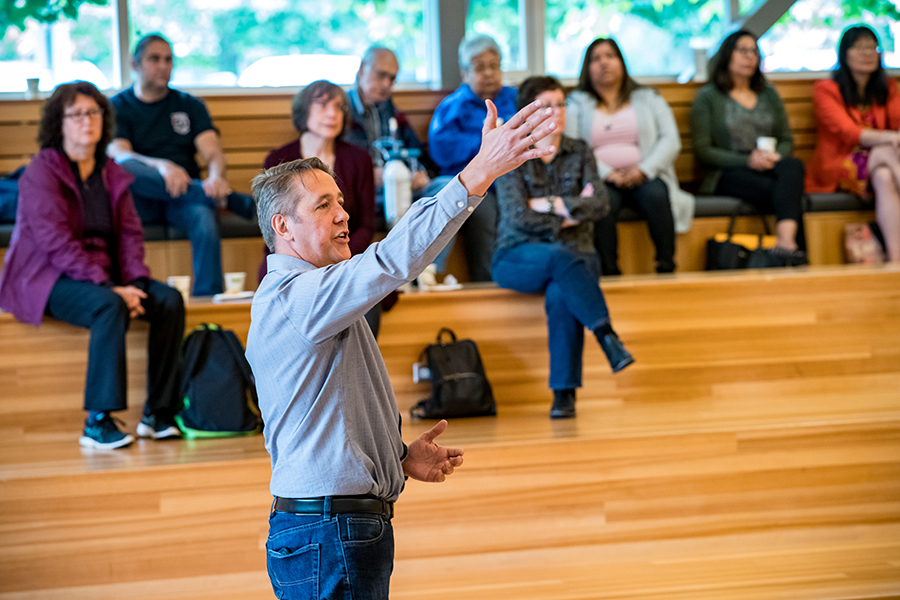On Tuesday, Sept. 24, UFV held a meet and greet for UFV’s newest faculty member, Keith Thor Carlson.
Carlson is now the third Canada Research Chair (CRC) to reside at UFV. The CRC is a title awarded by the Canadian federal government to scholars that our country’s universities seek to recruit for the beneficial impact they may have on Canadian lives. Carlson’s area of focus is Indigenous and community-engaged history.
Carlson got his start as a student in B.C. after receiving a co-op job position with Indian Affairs, which involved the hearing of land claims cases. He thought he would be helping Indigenous people with their claims, but to his dismay found that the ministry was doing the opposite, by challenging such claims and putting the burden of proof on the claimants. Carlson left Indian Affairs and instead offered his services to local First Nations. For nine years he worked for the Sto:lo people as a research co-ordinator and historian.
Grand Chief Clarence “Kat” Pennier, a friend and colleague of Carlson, spoke at the meet and greet about Carlson’s past career and his contributions to the Stó:lo Nation. Carlson spoke with elders and listened to their stories and concerns. More importantly, he put those statements in writing so that outsiders could “understand what we talk about,” Pennier said.
“It’s important for the broader public to understand why we are the way we are,” Pennier said, citing intergenerational trauma and their troubled relationship with the Canadian justice system as examples.
Carlson later spent two decades working at the University of Saskatchewan. During this time, he worked with the local Métis. However, Carlson said he has always had a better grounding in B.C., and he made many visits to B.C. during his time at the University of Saskatchewan. Carlson looks forward to being able to work with the Stó:lo Nation, of which he is an honorary member, once again.
Following the conclusion of some prior projects that are nearing completion, Carlson plans to embark on two new projects at UFV. One of these will be an effort to historicise sources of Indigenous trauma that predate the era of the residential schools, such as kidnappings of Indigenous people by fur traders, gold prospectors, and Spanish explorers and missionaries, often for the purposes of slave labour. The other will be writing a book on the colonial reservation system in Canada, which is intended to serve as a reference work for Indigenous land claims.
Carlson has spoken with members of the Stó:lo Nation, from elders to children, and asked them what reconciliation would look like for them assuming things like money and politics were no object. In his role as a historian, Carlson seeks to challenge the settler-dominated narrative of Canadian history which reduces Indigenous history to a prologue or side note and assigns heavy emphasis and importance to colonial and post-colonial history. He shared an anecdote about how deeply these historical assumptions run: when he was consulting a Stó:lo Nation woman for a work on the history of the Stó:lo in Canada and she asked why it should not instead be the history of Canada among the Stó:lo .
Image: UFV Flickr/The Cascade


